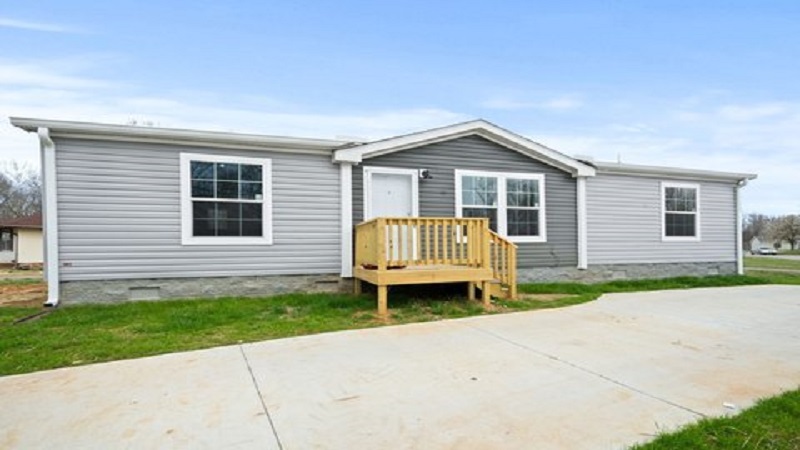In an era where housing affordability is a growing concern, mobile homes present a viable solution for many individuals and families. These prefabricated structures, also known as manufactured homes, offer a cost-effective alternative to traditional site-built houses. This article delves into the benefits, challenges, and considerations of owning a mobile home, providing a comprehensive overview for prospective buyers.
What is a Mobile Home?
A mobile home is a pre-built dwelling that is manufactured in a factory and then transported to a designated site, either temporarily or permanently. Unlike traditional homes, which are constructed on-site, mobile homes are typically built on a chassis with wheels, which makes them relocatable. Over the years, mobile homes have evolved significantly in terms of quality, design, and durability, appealing to a broader demographic.
Mobile Home Costs
The cost of a mobile home varies based on the type, condition, and location where it’s purchased. Here’s a breakdown of what you can expect to pay for different types of mobile homes:
Single-wide Mobile Homes
A single-wide mobile home is typically up to 18 feet wide and 90 feet long. Prices for new single-wide homes average around $51,000. If you’re considering a used model, prices range from $10,000 to $25,000, depending on the condition and features.
Double-wide Mobile Homes
Double-wide mobile homes are essentially twice the width of single-wides, though their sizes can vary significantly. They can be as large as 36 feet wide and 90 feet long, with most ranging from 1,300 to 1,800 square feet. The average cost for a new double-wide mobile home is about $107,000.
Triple-wide Mobile Homes
Triple-wide homes are the largest of the typical mobile home formats, offering up to 3,000 square feet of space. These spacious homes come with a higher price tag, with new units averaging up to $250,000.
Benefits of Mobile Homes
Affordability
One of the primary advantages of mobile homes is their affordability. They are generally less expensive per square foot compared to traditional houses. This price difference allows buyers to own a home without committing to a large mortgage.
Flexibility
Mobile homes provide spatial and locational flexibility. Owners can choose to place their homes in mobile home parks, on leased land, or on property they own. The ability to relocate the home is particularly advantageous for those who may need to move for employment or personal reasons.
Variety
Manufactured homes come in various sizes and layouts, ranging from compact single-section homes to more spacious multi-section units. Modern mobile homes can also be customized with various architectural styles and interior finishes, catering to diverse tastes and needs.
Challenges of Mobile Homes
Depreciation
Unlike traditional homes, which typically appreciate over time, mobile homes often depreciate. Depreciation can affect the resale value of the home, making it a less favorable long-term investment for some buyers.
Financing
Securing financing for a mobile home can be more challenging than for a traditional house. Many financial institutions have stricter lending criteria for manufactured homes, especially if they are not permanently affixed to land.
Perception and Stigma
Mobile homes often face societal stigma and misconceptions regarding their quality and aesthetics. This perception can impact community acceptance and resale opportunities.
Regulatory and Zoning Considerations
Mobile homeowners may face certain regulatory and zoning restrictions. Some regions have specific codes that govern the placement and standards of manufactured homes. Prospective buyers should research local regulations thoroughly before purchasing a mobile home.
Living in a Mobile Home Park
Many mobile home owners choose to live in mobile home parks, where they rent a plot while owning the home itself. These parks sometimes offer communal amenities such as pools, clubhouses, and social activities. However, living in a park also means adhering to park rules and dealing with potential changes in lot rent.
Maintenance and Upkeep
Maintenance for mobile homes is similar to that of traditional homes, involving regular upkeep of the interior and exterior. Proper maintenance is crucial for ensuring the longevity and comfort of the home.
Conclusion
Mobile homes offer an accessible route to homeownership for many, with advantages in cost and flexibility. However, potential buyers must consider the challenges of depreciation, financing, and community perception. By understanding these factors and conducting thorough research, individuals can make informed decisions about whether a mobile home is the right choice for their housing needs.
FAQs
- Can I Put a Mobile Home on My Parents’ Property?
- Can You Put Solar Panels on a Mobile Home?
- Can You Rent a Mobile Home? Exploring Your Options
- Can I Put a Mobile Home on My Property?
- How Much Does It Cost to Level a Mobile Home?
- How Much Do You Get For Scrapping a Mobile Home?
- Can a Mobile Home Park Take Your Mobile Home?
- How Much is a Permit to Move a Mobile Home?
